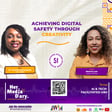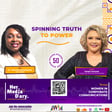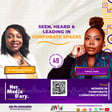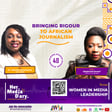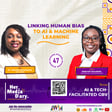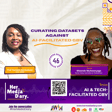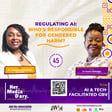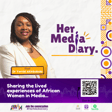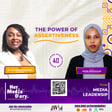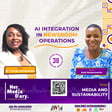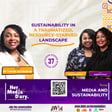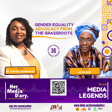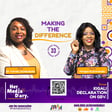
Her Media Diary Episode 32: “Becoming a Voice for Change” with Sarah Mawerere
Sarah Mawerere is a senior broadcast journalist at Uganda Broadcasting Corporation (UBC). She shares her experience growing up in the rural Busoga Region of Uganda, where she faced numerous challenges, including the loss of both parents at a young age. Despite these hardships, she pursued her dream of becoming a journalist, inspired by the voices she heard on Radio Uganda as a child.
The Kigali Declaration on the Elimination of Gender Violence in Media in Africa has been a significant influence on her work. Sarah sees it as a call to action, urging media houses to ensure that their content is gender-sensitive and that the voices of both men and women are represented equally.
Subscribe to Her Media Diary now on your favourite podcasting platform https://linktr.ee/hermediadiary
Learn about African Women in Media at https://africanwomeninmedia.com
List of Organisations/Resources to Support Women in Media
· International Women’s Media Foundation (IWMF)
· African Women in Media (AWiM)
· Public Media Women in Leadership
· International Journalists’ Network (IJNet)
· Kigali Declaration on the Elimination of Gender Violence
· Media Career Development Network
